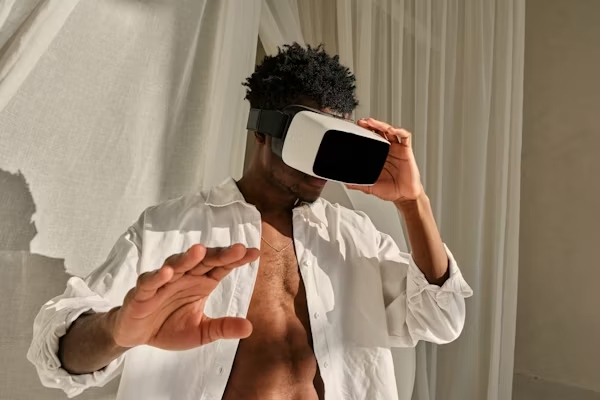The internet has reshaped how we observe, interact, and connect with the world. While social media and streaming platforms encourage people to share curated parts of their lives, some corners of the digital space go further—offering raw, unfiltered windows into private realities. One such phenomenon, associated with platforms like realifecamù, sits at the center of conversations about digital voyeurism, privacy, and modern curiosity.
This article explores the meaning of realifecamù, why it captivates audiences, and the cultural and ethical debates it sparks in today’s digital society.
What is realifecamù?
realifecamù refers to platforms or services that stream real-time video from private spaces—homes, apartments, or daily living environments. Unlike reality TV, which is heavily edited and staged, realifecamù projects itself as authentic life in motion, broadcasting unscripted and continuous footage of people going about their everyday activities.
To audiences, it offers:
-
A 24/7 view into lives that feel intimate yet distant.
-
A blend of reality and spectacle, where the mundane becomes entertainment.
-
A form of digital voyeurism, sparking both fascination and discomfort.
The Digital Voyeurism Phenomenon
Voyeurism, traditionally linked to private observation without consent, has taken on new meanings in the digital age. Platforms like realifecamù occupy a gray zone between consensual exposure and curiosity-driven observation.
Key aspects of digital voyeurism include:
-
Voluntary exhibition – Participants choose to live under constant cameras, often in exchange for income or online visibility.
-
Endless accessibility – Viewers can tune in anytime, from anywhere, dissolving traditional boundaries of privacy.
-
Blurring lines of intimacy – Watching strangers cook, sleep, or interact creates an illusion of closeness, even though no real relationship exists.
Why Audiences Are Drawn to realifecamù
The popularity of realifecamù is tied to deep-rooted psychological and cultural drivers:
1. Curiosity About Others
Humans are naturally curious about how others live. The chance to observe daily routines offers a raw alternative to the polished highlight reels of social media.
2. Escapism and Entertainment
For some viewers, watching realifecamù is a way to escape their own routines by immersing themselves in someone else’s world.
3. The Illusion of Authenticity
Unlike scripted shows, realifecamù feels spontaneous. This authenticity—whether real or perceived—adds to its allure.
4. A Sense of Connection
Viewers may develop parasocial relationships, forming one-sided bonds with people they observe, even without direct interaction.
The Privacy Debate
While participants may consent to being filmed, realifecamù raises serious privacy concerns:
-
Informed Consent – Do participants fully understand the long-term consequences of exposing their lives to a global audience?
-
Loss of Boundaries – Continuous surveillance erodes the distinction between public and private spaces.
-
Impact on Relationships – Living under constant observation can strain family dynamics, friendships, and intimacy.
-
Data Security Risks – Recorded streams could be misused, archived, or distributed beyond their intended scope.
The debate underscores a critical question: Can privacy truly exist in an age where people willingly broadcast their personal lives?
Cultural Implications of realifecamù
Beyond individual participants, realifecamù reflects broader cultural shifts:
1. Normalization of Surveillance
As people grow accustomed to being watched—whether through CCTV, social media, or livestreams—surveillance becomes normalized. Realifecamù blurs the line between entertainment and oversight.
2. The Reality Culture Economy
Like reality TV and influencer culture, realifecamù commodifies daily life. Ordinary routines become marketable content.
3. Ethical Consumption of Entertainment
Audiences must grapple with whether watching realifecamù is harmless curiosity or participation in exploitative voyeurism.
4. Redefining Authenticity
In an age of filters and editing, realifecamù raises the bar for “authentic” digital experiences—even if authenticity itself is carefully curated.
Challenges and Criticisms
While fascinating, realifecamù is not without its critics:
-
Exploitation Concerns – Some argue participants may be pressured into exposure for financial gain.
-
Viewer Ethics – Is watching strangers’ daily lives an invasion of privacy, even if consent is given?
-
Mental Health Impact – Both participants and viewers may experience psychological effects, from stress and anxiety to unhealthy attachment.
-
Legal Ambiguity – Laws around digital voyeurism vary widely, creating regulatory challenges.
The Future of Platforms Like realifecamù
As digital culture evolves, realifecamù and similar platforms may transform in several ways:
-
Stricter Regulation – Governments may enforce clearer rules around privacy, consent, and data security.
-
Hybrid Models – Blending voyeuristic elements with interactive features, gamification, or controlled access.
-
Cultural Integration – Normalizing constant exposure as part of digital entertainment, akin to reality TV.
-
Ethical Alternatives – Platforms might shift toward performance-based livestreaming, balancing audience curiosity with participant well-being.
Conclusion
realifecamù sits at the intersection of voyeurism, entertainment, and digital culture. Its allure stems from human curiosity, the promise of authenticity, and the thrill of observing lives different from our own. Yet, it also raises profound questions about privacy, consent, and the ethics of consuming such content.







